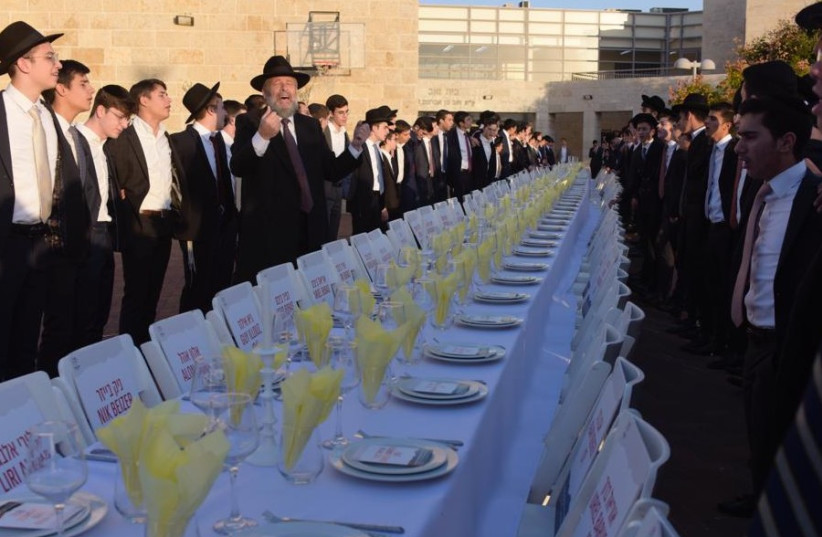In a heartfelt display of solidarity, students at the Erlau Hasidic Yeshiva in Jerusalem's Katamon neighborhood have arranged 138 Hanukkah menorahs in their yeshiva auditorium.
Each menorah, lit on Thursday, symbolized one of the hostages, reflecting the Yeshiva's commitment to the "Unity in Action" campaign and their deep connection to the hostages' plight.
A student from the Yeshiva explained, "In studying the laws of Hanukkah candle lighting, we felt moved to light candles on behalf of the hostages, who cannot do so themselves, thus bestowing a mitzvah upon each one of them." This initiative highlights the Erlau community's empathy for those affected by this ongoing situation.
A united community
The Erlau dynasty, a Haredi Jewish community of Hungarian origin, adheres to the teachings of the Chasam Sofer and is often considered Hasidic. Founded in Jerusalem by Rabbi Yochanan Sofer after World War II, the Erlau community combines Ashkenazic traditions with Hasidic customs.
Rooted in the teachings of Rabbi Moshe Sofer, the Chasam Sofer, whose Pressburg yeshiva was a central European influence, the dynasty thrived under Rabbi Yochanan Sofer. A Holocaust survivor, Rabbi Yochanan Sofer established the Erlau yeshiva and community in Israel. Following his passing in 2016, the leadership passed to Rabbi Moshe Sofer, maintaining the dynasty's presence globally.
Despite not stemming directly from the Baal Shem Tov's lineage, the Erlau community is considered Hasidic due to their dress and customs. At the same time, they continue to follow the nusach Ashkenaz in their prayers.
This demonstration is part of broader efforts by the Israeli community, including the Haredi sector, to raise awareness and support for the swift release of all hostages. Similar events have been organized in other parts of Jerusalem and Bnei Brak, particularly at Nehora High School Yeshiva.

Special projects in honor of hostages during Hanukkah
In addition, during Hanukkah, Rabbi Akiva Street in Bnei Brak will feature projections of the hostages' names, encouraging prayers for their return. The campaign, backed by Unity in Action initiative, has seen significant community engagement, particularly in the Haredi sector.
In another symbolic act, students at Nehora Yeshiva in Mevo Horon have set up an empty table with chairs for the hostages, a global symbol of their absence and awaited return. This installation, now present in a Haredi yeshiva for the first time, is a poignant reminder of the community's united hope for their return.
Moreover, in Meah Shearim, Haredi women have initiated a campaign using pashkevils (posters that have been situated on a public wall in an ultra-orthodox Jewish community) in Yiddish to promote the reading of Psalms for the hostages.
This effort has allowed community members to "adopt" a hostage in their prayers, further strengthening the communal commitment to this cause.
